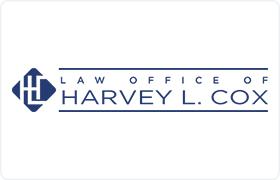 Whitney Trusts Lawyers, Texas
Whitney Trusts Lawyers, Texas
Sponsored Law Firm
-
 x
x

Click For More Info:
-
Law Office of Harvey L. Cox
1600 Lake Air Drive Suite 102 Waco, TX 76710» view mapEstate Law, Power of Attorney A New Perspective On Estate Planning
Our Family Estate & Business Planning focuses on protecting your assets from creditors, predators, lawsuits, judgments, liens, and greedy relatives.
800-795-7741
Lawyers
1-2 of 2 matches



 Harvey L. Cox Waco, TX
Harvey L. Cox Waco, TX Practice AreasExpertise
Practice AreasExpertise